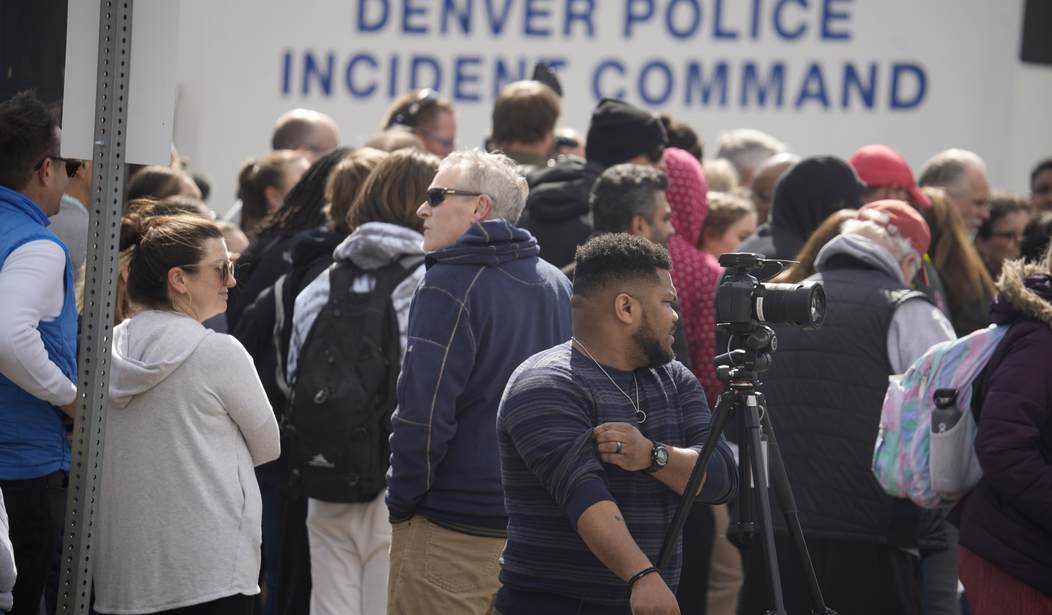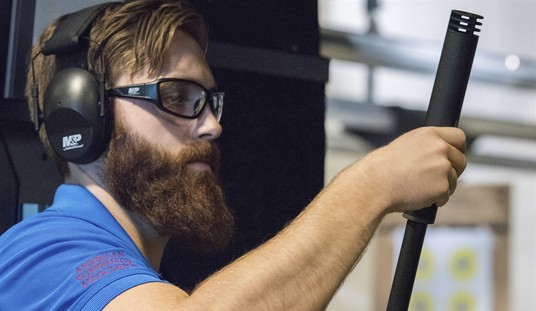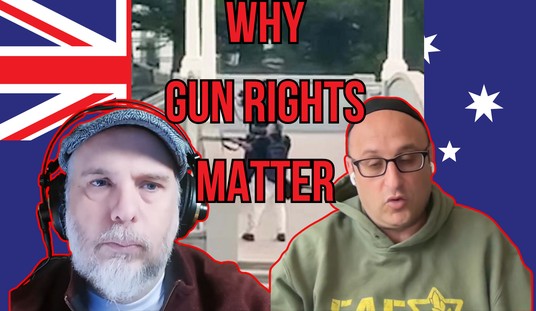A pair of gun control bills could soon be on Colorado Gov. Jared Polis’s desk, and a third is quickly moving through the state legislature after Democrats invoked a little-used rule in the state House to limit debate on the anti-gun legislation over the weekend.
That move cut short a Republican filibuster that had slowed passage of the bills, allowing them to advance out of the House on Sunday. With a Democratic supermajority in both chambers, the filibuster was seen as the best chance to block the measures from being enacted into law, but Democrats dusted off a House rule that the Denver Post reports hasn’t been used “in recent memory” in order to limit debate on the bills to just one hour.
The move drew howls from Republicans. Several already had stickers ready to protest the limitation. Rep. Scott Bottoms, a Colorado Springs Republican, would later call it “fascism” and likened it to a biblical stoning. Dave Williams, the GOP’s newly elected state chair, called Democratic leaders “vile tyrants” in a late Saturday statement. Minority Leader Mike Lynch said Democratic leaders had given in to the “radical fringes” of their caucus.
Asked about his own caucus’s right wing, whom Democrats said had scuttled negotiations, Lynch acknowledged that “we suffer from the fringes.” He indicated Republicans will now ask for more bills to be read at length over the remaining six weeks of the session — meaning their entire text read aloud, eating up more valuable time — as a response. One Republican staff member said his party’s response would be “punitive.”
Democrats, meanwhile, said Republicans were given ample opportunity over the weekend to voice their concerns over the bills and that it became clear that the minority party had no interest in productive debate. The Colorado legislature meets for only 120 days, and each burned hour has tangible consequences.
…
The two measures passed out of the House on Sunday represent half of the Democrats’ four priority gun bills this session. A third — to raise the age limit to legally purchase firearms to 21 — was introduced for initial approval before the full House early Sunday evening. Majority Leader Monica Duran swiftly moved to curtail debate on that bill to four hours.
The lawsuit bill — SB23-168 — would remove Colorado’s protections for gun dealers and manufacturers, making it easier for families and victims to file lawsuits against them. SB23-170 expands the state’s red-flag law, which currently allows law enforcement officials and family members to ask a judge to temporarily take someone’s firearms if they’re deemed to be a threat to themselves or others. Cast by Democrats as a way to slow suicides and external violence, the bill would allow educators, health providers and district attorneys to also file those petitions.
Colorado’s suicide rate is far higher than the national average, but will expanding the state’s existing “red flag” law do anything to bring those numbers down? I doubt it. The law took effect in 2020, but the state reported an increase in suicides in 2021. Broadening the law to allow for more “red flag” petitions to be filed may theoretically increase the odds of stopping someone from using a gun to take their own life, but research has suggested the laws have little impact on overall suicide rates. Though inquiries into the effectiveness of “red flag” laws are few and far between, one study found a slight decline in overall suicides after Indiana implemented its “red flag” law in 2005. However, that same study also found an overall increase in suicides in Connecticut after its “red flag” law took effect, and Colorado Republicans warned their Democratic counterparts that expanding their own “red flag” law is likely to come with some unintended and undesirable consequences.
The Republicans described the bill’s expansion of the law as overly broad, ineffective and self-defeating. Some won’t seek mental health care if they fear they may lose their guns, they argued.
“It’s not a gun issue,” Winter said. “For us, it’s a self-preservation issue, it’s a constitutional issue, it’s the protection of our lives. And I’m scared. We hope there’s no ill-intended consequences from this. … But I’m scared there will be.”
Democrats, in turn, said the bill was a vital tool to both help avoid suicide and curb violence between people. Weissman, one of the Democratic sponsors, quoted “Dante’s Inferno” and said some in crisis need help through dark times. Bacon encouraged lawmakers to “stand in the tension.”
“On behalf of people who have been asking for help,” she said, “we will put you in a position to where you can get it.”
That’s simply a lie. There is no mental health component to Colorado’s “red flag” law. If a judge determines that someone is a danger to themselves or others, he can order their firearms to be taken from them, but even after an ERPO has been issued the subject of the petition is not offered any sort of help with whatever crisis they might be dealing with. Neither the original law passed in 2019 nor the expansion approved by the House over the weekend contain any provision or funding for mental health services, so for Rep. Jennifer Bacon to insinuate that the “red flag” bill offers any sort of help for people in crisis is simply reprehensible.
Oddly, this is the same representative who doesn’t think police should be making arrests for “low-level offenses” like trespassing or disorderly conduct, but she’s totally cool with law enforcement going and confiscating firearms from individuals who’ve never been accused of a crime, much less formally charged with one.
This soft-on-crime, tough-on-gun-owners approach is going to continue in Colorado, with the House Judiciary Committee scheduled to hear Rep. Elisabeth Epps’s ban on so-called “assault weapons” on Wednesday this week. HB 1230 was introduced without fanfare on a Friday night a few weeks ago and has not been promoted by Polis in the days since, but with the bill now starting to move it looks like Democrats are prepared to make the gun ban legislation a priority in the very near future.









